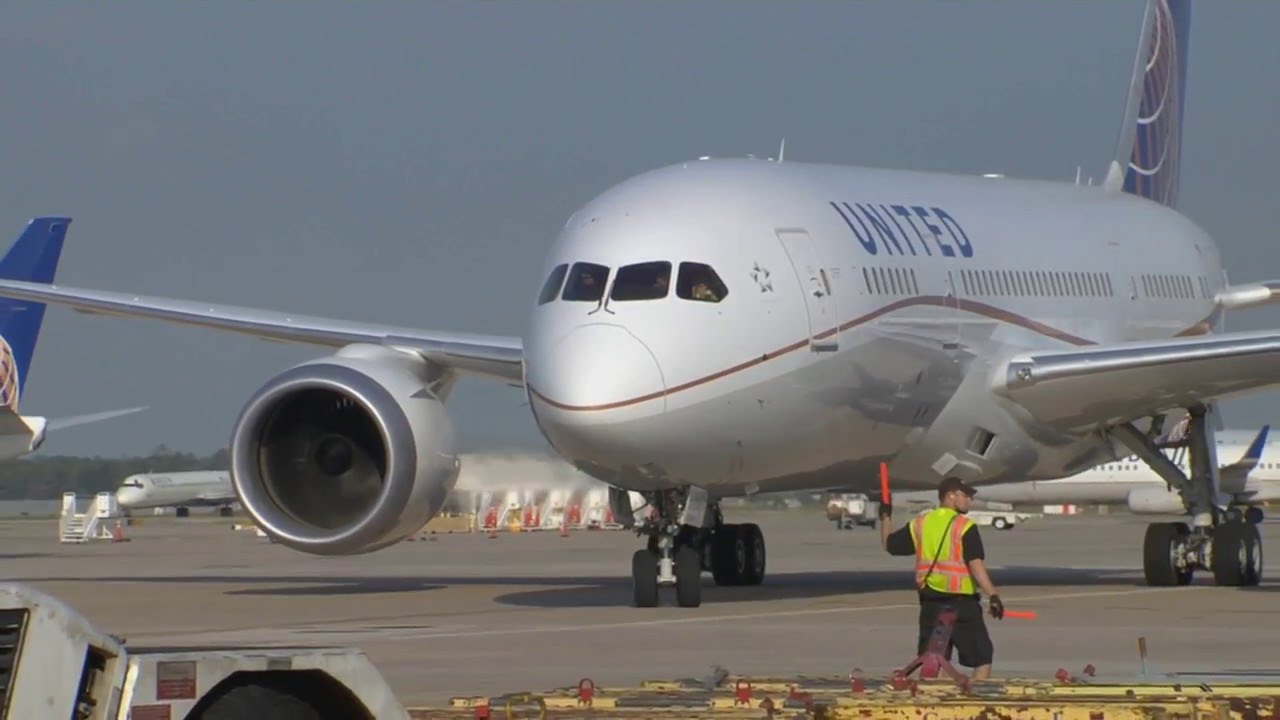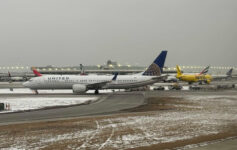United Airlines will tackle weakened travel demand by reducing or suspending more routes, offering unpaid leave, freezing all non-essential hiring, and postponing raises for non-union employees.
In a lengthy memo to United employees, outgoing CEO Oscar Munoz and incoming CEO Scott Kirby share of a number of actions United is taking to address the unprecedented and rapid decline in demand due to coronavirus.
Here’s what to expect as a customer:
- United will reduce its international schedule by 20% in April, which will likely stretch till the end of May
- This includes the Asia service reductions already announced
- Details will be revealed on March 7th and may include delays in launching seasonal service and a reduction in frequencies of flights to Europe
- United will also reduce its domestic schedule by about 10% in April and potentially May
On the employee front, United is offering unpaid leave, suspending all new hiring, and postponing until at least July any salary increases for non-union personnel. No word on whether Munoz or Kirby will take paycuts.
In short, United is not waiting for other airlines to begin reducing their domestic schedules and foresees weekend demand at least until the start of summer.
Here’s the memo in full, courtesy of JonNYC:
To our United family,
In my note to you over the weekend, I said that your role in taking care of our customers would be critical as we manage through this coronavirus (COVID-19) crisis, and you are delivering beyond my expectations – we had the best winter month operational performance in January and February that our airline has ever seen. We’re also seeing some of the strongest customer satisfaction ratings in recent memory. That is what success for our company looks like and just one of the reasons why Scott and I are so proud of this team.
Scott is joining me for today’s update, as a lot has changed since this weekend. Overseas, Cathay Pacific has canceled more than three-quarters of its weekly flights in March, and British Airways canceled a large number of flights between March 16 and March 28 because of a large decline in demand.
The experience of these and other foreign carriers is a further sign that the impact of COVID-19 on our industry – both internationally and here in the U.S. – continues to evolve rapidly. We have taken aggressive action to protect our employees, our customers and our company – and we’re back today to provide some additional details.
Due to decline in demand flowing from the impact of COVID-19, we’re taking additional steps to reduce our international and domestic schedules. All of our schedule reductions are, importantly, being implemented in a way that minimizes the impact on our employees and our operation. For example, we’re reducing the number of frequencies per week, finding routes with alternative travel options via other United hubs, and delaying start dates for seasonal travel to certain destinations – without closing any domestic stations.
- International Network Changes: We will reduce our international schedule by 20% in April. We’ve already begun planning similar reductions in May. These schedule changes go public on March 7 and include previously announced capacity reductions to select destinations across Asia and suspension of service to Shanghai, Beijing, Chengdu and Hong Kong.
- Domestic Network Changes: The decline in our international bookings, combined with lower demand among U.S. travelers, requires significant changes to our domestic schedule as well. Our schedules across the U.S. and Canada will be reduced by 10% in April. We’ve already begun planning similar reductions in May. These changes also go public on March 7.
- Change Fees: Given the high level of uncertainly regarding travel, we are working to give customers more flexibility. We are waiving change fees for any booking – domestic or international – made between March 3 and March 31.
Due to our planned reduction in domestic and international departures – and the resulting impact on our operation – we have also made the difficult decision to implement the following measures, which will affect our employees:
- Voluntary, Unpaid Leave of Absence: Starting today, active, non-probationary, U.S.-based employees have the option to apply for a voluntary, unpaid leave of absence or in some cases, a reduced schedule. Details and eligibility will vary by group and employees who are interested can learn more and submit their request through Help Hub.
- Hiring Freeze: All new hiring has been suspended through at least June 30, except for roles that are critical to our operation. We also are evaluating the schedule for all new-hire training classes as we will need to postpone some of these classes given the domestic and international schedule changes mentioned above.
- Postponed Salary Increases: 2019 merit salary increases for all Management and Administrative employees, including officers of the Company, will be postponed from April 1 until July 1, 2020. All employees covered by collective bargaining agreements will continue to receive their scheduled increases.
In the midst of all these changes, our core4 commitment to safety – your safety – has not wavered. We remain in close contact with the U.S. Centers for Disease Control and Prevention, the World Health Organization, federal officials, and other health organizations as we take a variety of steps to keep our customers and employees safe. We’ll continue to keep you in the loop as we implement additional safety measures moving forward.
In this uncertain environment, United, working closely with our labor leaders and the U.S. government, has never been better prepared to weather a crisis like this and that is a tribute to all of you and the jobs you do every day, taking care of our customers and one another.
We sincerely hope that these latest measures are enough, but the dynamic nature of this outbreak requires us to be nimble and flexible moving forward in how we respond. We are confident that if we continue to stick together as one United family, we will emerge from this challenge better positioned than ever to take United to new heights.
Thank you again for all you do.
Regards,
Oscar and Scott
CONCLUSION
The employees I have talked to all think that United is overreacting. That may be true and I hope employment issues are handled delicately and on a case-by-case basis. But I have also seen in my own travel consulting business and in speaking to colleagues who work for big companies that all non-essential travel has essentially been halted. Even some accounting firms are working remotely rather than sending auditors on-site during busy season. I don’t expect that to change until the number of worldwide COVID-19 cases stops growing or a vaccination is discovered.
image: United Airlines





Yep, just received an email from our corporate offices this morning that all non-essential travel is not permitted….effective immediately. And, travel to China or any area where the spread of the virus has been documented is “prohibited”. They’re also asking us not to attend or host any large meetings or gatherings. Among other measures discussed in the communique.
None of this is good for the travel and hospitality industries.
So, I work for United. I’ve seen the demand forecasts that have dropped close to 150% YoY for certain routes, and 80% *transatlantic* and climbing. It wasn’t even this bad after 9/11. We were told “not to worry” which as everyone knows is corporate speak for “you should be worried”. Yes, this may be a bit of a rash over-correction on managements part right now, but it’s going to get worse before it gets better.
Needless to say I will definitely be looking at linkedin on my phone today.
It is not statistically possible to have a demand drop of 150%.
United has the most exposure to this outbreak so they will have the deepest cuts and are definitely not over reacting. Delta and American will be announcing similar but smaller cuts because their network structures are different.